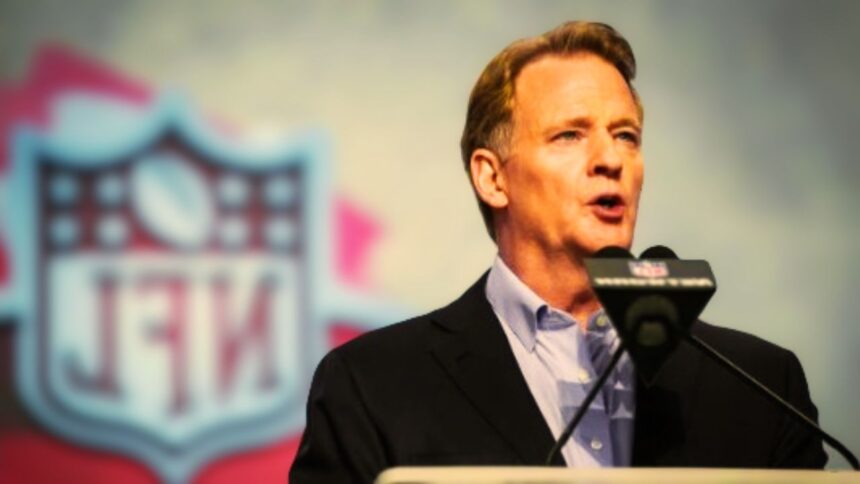In the world of sports, few figures provoke as much controversy and frustration as Roger Goodell, the commissioner of the NFL. Despite his hefty annual salary, which reportedly exceeds $70 million, Goodell’s leadership is often criticized for prioritizing profit over the best interests of the game and its fans.
Recent developments in the NFL’s business strategies have only fueled the flames of criticism against Goodell. One of the most notable moves is the league’s push for more lucrative TV deals, even at the expense of diminishing interest in NFL games. Under Goodell’s stewardship, the NFL has opted to expand its streaming offerings, doubling the number of exclusive games available behind paywalls. This includes the introduction of an international game in South America, set to be streamed exclusively on a Friday night during Week 1 of the season.
While the NFL justifies these moves as part of its global expansion strategy and adaptation to the digital age, critics argue that they alienate traditional fans and prioritize short-term financial gains over the long-term health of the sport. For instance, the decision to stream playoff games exclusively has led to a significant drop in viewership compared to games broadcast on regular television channels.
Greedy Roger Goodell can’t pass up any chance for a few extra dollars https://t.co/EfqqusYkbw pic.twitter.com/SLAldEdqrp
— New York Post (@nypost) March 30, 2024
Furthermore, the NFL’s pursuit of profit often comes at the expense of fan experience and safety. Goodell has been criticized for scheduling games in adverse weather conditions and for promoting ticketing practices that prioritize revenue generation over affordability and accessibility for loyal fans.
One glaring example of this profit-driven approach is the implementation of Personal Seat Licenses (PSLs) in new stadium projects. PSLs require fans to pay additional fees for the right to purchase season tickets, often at exorbitant costs. The Buffalo Bills’ upcoming stadium, funded by taxpayers, will reportedly impose staggering PSL fees on preexisting ticket holders, forcing many long-time fans to abandon their season tickets due to financial constraints.
Moreover, Goodell’s leadership has been called into question regarding the league’s handling of sensitive issues such as player conduct and social justice. While the NFL has made public gestures to address racism and inequality, critics argue that certain forms of bigotry, particularly anti-Semitism, continue to be tolerated or overlooked within the league.

In light of these controversies, Roger Goodell’s tenure as NFL commissioner remains a subject of intense scrutiny and debate. As the league continues to pursue profit-driven initiatives, the question remains whether Goodell will prioritize the integrity of the game and the interests of its fans or continue down the path of corporate greed.
Sarah’s View:
Criticism mounts against NFL Commissioner Roger Goodell amidst the league’s profit-driven pursuits. With an annual salary surpassing $70 million, Goodell’s leadership prioritizes lucrative TV deals and streaming expansions, sparking concerns over fan alienation. Critics argue these moves sacrifice tradition and fan experience for short-term gains. The introduction of Personal Seat Licenses (PSLs) in new stadium projects exacerbates financial burdens on loyal fans. Furthermore, Goodell faces scrutiny over the league’s handling of social justice issues, with accusations of overlooking certain forms of bigotry. As the NFL navigates profit-centric strategies, the balance between financial success and the game’s integrity hangs in the balance, prompting ongoing debate over Goodell’s stewardship.




